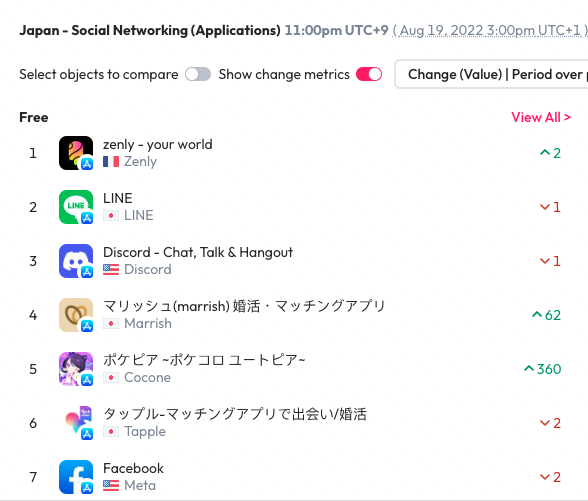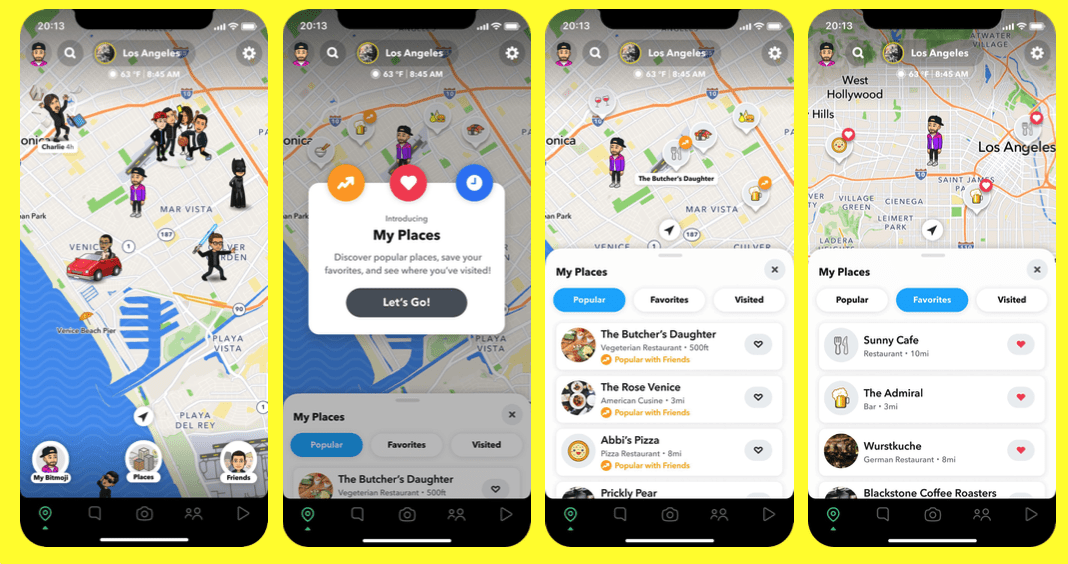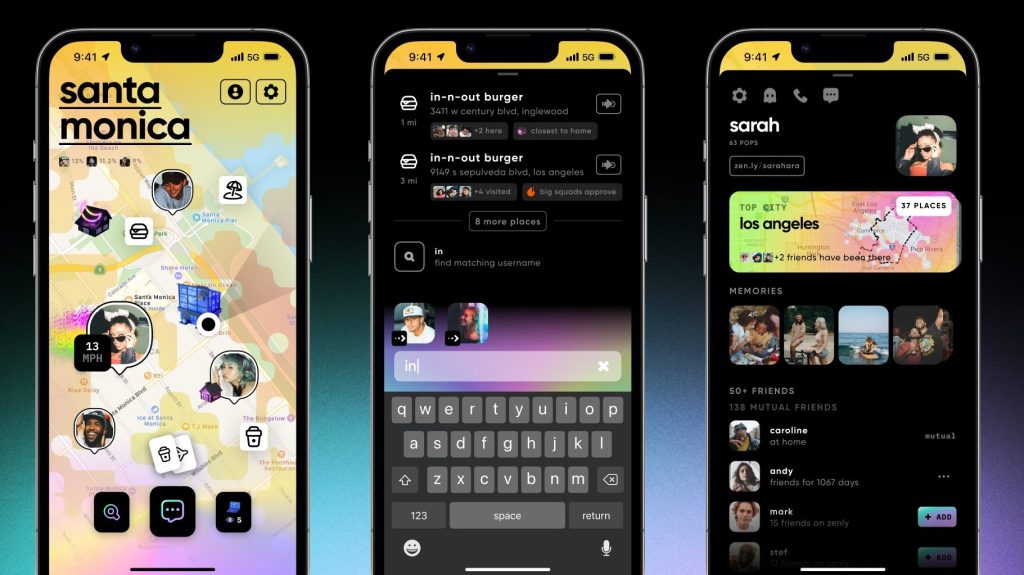Snapchat’s parent Snap became the latest tech company to announce a huge round of layoffs, confirming ongoing rumors yesterday that it was cutting 20% of its global workforce, affecting at least 1,200 people.
The reasons for Snap’s massive scaling back exercise are perhaps obvious, as it’s the same economic reasons why countless other businesses have laid off workers this year — the company said the cuts could save it $500 million in costs annually. The markets seemed to like the news, too, with Snap’s shares jumping around 15% at one point yesterday when it announced the cutbacks, before settling at around 9% up over the previous day’s closing price.
While the mass redundancies understandably garnered the lion’s share of the headlines, buried in amongst this news was Snap’s plans to cut additional costs through “refocusing” its business, which includes ceasing investments in certain products. Part of this involves winding down two standalone apps, one of which is Zenly, a social mapping app that it acquired for north of $200 million five years ago. The entire Zenly team has been laid off, while their non-compete clauses have been waived.
While it’s not uncommon for companies to shutter apps years down the line, particularly during cost-cutting “restructuring” efforts, the decision to close Zenly completely is surprising due to the fact that it’s still a very popular app in its own right even if it does sit in Snapchat’s shadow and doesn’t generate much direct revenue.
There’s a map for that
Zenly was founded out of Paris in 2011, going on to raise $35 million in funding before Snap (then called Snapchat) swooped in with its mega-million-dollar bid. In a nutshell, Zenly develops an app that enables users to see where friends are on a map and navigate their way to each other.
But Zenly isn’t just a utility. It can be defined as a social app that revolves around a map. When you open the app, you see a map with all your friends. If you see that several friends are hanging out together, you can message them and request photos so that you can see what they are doing right now. While many “social” apps encourage you to stay in your bed and scroll, Zenly urges you to connect with your friends and spend more time with them.

Zenly has continued to operate as a standalone entity since the acquisition, and it’s easy to forget that Zenly is owned by Snap at all, with the original development team still based out of Paris and no obvious Snap branding anywhere on Zenly’s app or website.
Just a few months back, Zenly rolled out a huge update that added several new features, including the ability to search for places. Users could also pin places to “their world,” such as their favorite bars, restaurants, gyms, libraries, shops and more. This represented Zenly’s biggest update in years as the app became a sort of modern Foursquare — users could discover places based on where their friends often go. When Zenly released the app update, co-founder and CEO Antoine Martin also revealed he was moving on from the company, with Snap CEO Evan Spiegel stepping into the role.
A month later, Zenly revealed that it was taking on the mighty Google and Apple by introducing its own mapping data and engine, the result of a gargantuan project it started some three years previous.

So Zenly was showing no signs of stagnating, and if anything, it looked like it had the potential to be one of Snap’s prized possessions if it could only figure out how to turn it into a money-making machine.
The data seems to back this up, too — Zenly claimed some 35 million monthly active users earlier this year. Additional figures provided to TechCrunch from Data.ai for this story tell us that Zenly has seen nearly 160 million downloads across Android and iOS since its inception, 3 million of which came last month alone.
While Data.ai’s numbers also show that Zenly is regularly among the top 20 downloaded social apps globally, digging deeper into market-specific metrics reveals that it often out performs every single other social app. In Japan, for example, Zenly is typically in the top five or 10 apps, but it often rises to pole position ahead of Facebook, WhatsApp, Discord and home-grown market leader Line, as this iOS chart from August 19 shows.

Elsewhere, Zenly is frequently a top-five social app in Russia and Belarus, a top-10 social app in France, Indonesia and Thailand, and it hovers around the upper echelons in the app charts in many other markets globally.
Of course, other burgeoning social apps such as TikTok and BeReal are leading the charge in Snap’s core target markets, including the U.S., which may be partly why Snap is less enamored by Zenly’s enduring popularity in locales elsewhere. But still, a well-placed source told TechCrunch that Zenly has consistently grown its user numbers on a quarter-by-quarter basis since the acquisition, and there is little evidence that this trajectory was going to cease any time soon — and that’s difficult to ignore.
Snap decision
So why has Snap chosen to pull the plug on Zenly rather than trying to nourish its evident popularity in major markets in Europe and Asia? And why not sell the app to another company that could do something useful with it? A clue lies in Snap’s own words from yesterday’s announcement. In an SEC filing, the company said that it would be winding down Zenly to “focus on Snap Map,” a location-focused social product that it launched way back in 2017.
Although Snap Map isn’t built directly on Zenly’s technology, it’s easy to see why having two location-based social products could be deemed unnecessary, especially when one of them has to be supported financially as a standalone product outside the main Snapchat client.
“Going forward, we will concentrate our mapping efforts on a single service, the Snap Map within Snapchat,” a Snap spokesperson told TechCrunch. “We thank the [Zenly] team for their many contributions and the Zenly community for their support.”
This shows that Snap is not abandoning social mapping, which means that selling Zenly to a third party wouldn’t be prudent from a competition standpoint. Snap confirmed this rationale to TechCrunch, explaining that it has made significant investments in Zenly since 2017, almost doubling the size of the team in the process, and that it ultimately didn’t find a path to meaningful revenue. Furthermore, given its continued focus on Snap Map, the company said that it would not be in Snap’s strategic interests to let Zenly slip into the hands of another company.
It’s perhaps not too much of a stretch to say that Zenly’s popularity may actually have worked against it here — any company that did decide to buy Zenly would have a significant, oven-baked global community to build on from the get-go. The risks here were ultimately too great for Snap.
Internally, Snap said that Snap Map has more than 300 million monthly active users, with the potential to connect each of them with 30 million businesses that are listed in the app — many of which pay to promote their listing. As an aside, though, it’s not clear how many of these active users are actually there for the mapping and location features — many use Snap Map simply to see when their friends were last seen online.

In summary, Snap thinks it already has the whole maps/location thing covered in Snapchat, it doesn’t have the cash flow to continue funding Zenly’s growth and it’s not prepared to let another company take over the reins as a means to protect its business interests.
Other cutbacks
It was a similar fate for Voisey, a U.K. startup Snap acquired for an undisclosed amount in 2020 and which is set to be discontinued on September 5. Similar to how Snap is pulling back from Zenly to focus on Snap Map, the company revealed that Voisey — which has been described as something akin to “TikTok for music creation” — will make way for Snap to focus entirely on Sounds, a music feature it launched inside Snapchat two years ago.
Elsewhere, Snap confirmed that it’s discontinuing its investments in a host of features and services including Snap Originals and Minis. And its mini-drone project Pixy, which Snap only announced in April, is also going the way of the dodo just as as reports suggested a few weeks back.
This helps to highlight just how quickly the tide has turned for Snap. In the space of four months, Pixy has gone from an exciting (if perplexing) new hardware project to dead in the water, while Zenly has gone from the crest of a wave to the brink of extinction.
We saw some of this coming though. Snap’s active users may be continuing to grow, but this is not reflected in its financial performance, which is due in large part to the current economic climate. At its Q2 earnings back in July, Snap wrote to its investors:
While the continued growth of our community increases the long-term opportunity for our business, our financial results for Q2 do not reflect the scale of our ambition. We are not satisfied with the results we are delivering, regardless of the current headwinds.
On top of that, Snap said at the time that it would curtail its operating expenses and slow its rate of hiring. The company also declined to give any guidance on its future financial performance due to “uncertainties related to the operating environment.”
So it was expected that we would see some casualties emerge from all of this. But it’s still a sad story in all kinds of ways, not least for those directly impacted by the layoffs.
While Zenly may have slipped under many people’s radars — especially in the U.S., where it has relatively few users — it is undoubtedly a major European success story. Zenly inspired a new generation of European entrepreneurs, had a huge impact on the French tech ecosystem, and solidified Snap’s own reputation in France. Zenly’s founders proved that it was possible to build a European social app with tens of millions of users — and BeReal shows that this is still possible today.
In the right environment, Zenly could have gone on to greater things, so it’s a major travesty that it’s meeting such a sudden and untimely demise.






























Comment